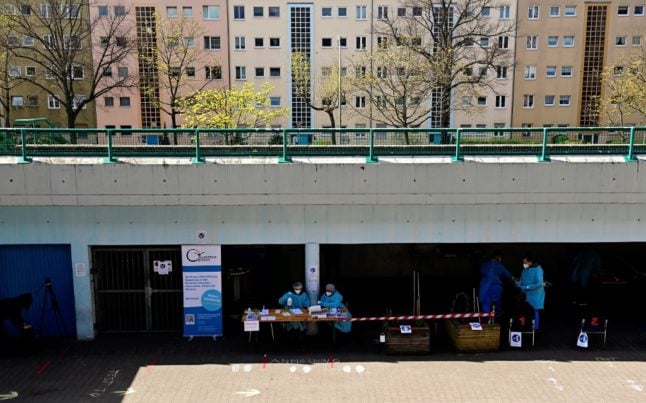“In January, we forecast growth of 3.0 percent. Current data show that it will even be slightly higher,” Altmaier said in an interview with the Funkemedia group, speaking ahead of the ministry’s gross domestic product forecasts scheduled for Tuesday.
Europe’s biggest economy shrank by 4.9 percent in 2020 as restrictions to curb the pandemic hit many sectors.
“There are reasons to be optimistic,” Altmaier said, pointing to better-than-expected data as industry benefits from the global recovery.
Nevertheless, he acknowledged that the anti-Covid restrictions – which are being tightened in Germany from this weekend in an attempt to rein in a ferocious third wave of infections – have hit sectors such as retail, gastronomy and hotels particularly hard.
READ ALSO: Germany makes new prediction for jobs and economy in 2021
The German economy will return to pre-pandemic levels “by 2022 at the latest,” Altmaier said.
Last week, Germany’s leading think-tanks similarly warned that the current wave of the pandemic would put the brakes on economic recovery, but they were pencilling in growth of as much as 3.7 percent this year.



 Please whitelist us to continue reading.
Please whitelist us to continue reading.
Member comments